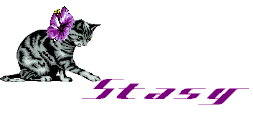


Vocalist and keyboardist Yumi Hara Cawkwell has forged an impressive reputation for herself, collaborating with a number of progressive rock heavies like Hugh Hopper (from Soft Machine), Geoff Leigh, Chris Cutler, John Greaves (all three from Henry Cow), and David Cross (ex-King Crimson).
Let's take a look at three releases in which she turns her talents to diversely alternative application.

YUMI HARA & TONY LOWE: Dream of the Gryllidae (CD on Academy Recordings)
This release from 2010 offers 46 minutes of modern classical music.
Hara plays keyboards and provides vocals. Lowe plays guitar.
Agile guitar and serious piano are augmented by vocal effects, resulting in entrancing tuneage that fuses jazz and rock with a modern outlook.
The guitar is nimble with its growlings, belting out riffs capable of searing paint from walls, then issuing delicate strumming designed to instill a heavenly dreamstate. Whether displaying intensity or delicacy, Lowe shows a remarkable mastery not only of the instrument but to the diverse emotional potential inherent in both sonic directions.
The piano pursues a very classical presence here, producing lilting chords that surround the listener like a twinkling cloud. Hara's fingers dance across the keys, triggering strains of somber demeanor that convey vivid melancholy one minute, then rise to express champion optimism in the next passage.
The vocals are mainly non-lyrical croonings, injecting a human element into the cerebral music.
These compositions wield melody and precision like a laser scalpel, without unnecessary frills, delivering tightly knit tunes reminiscent of a recital hall performance. The difference here is: this combination of guitar and piano is rich with contemporary sentiments that render the music highly enthralling to aficionados of prog as well as classical music.

YUMI HARA CAWKWELL & SATO YUKIE: Ride a White Rabbit (CD on Kootown Records)
This release from 2010 offers 58 minutes of avant garde music.
Cawkwell plays vocals and keyboards. Yukie (who is credited as the founding father of the Korean improvised music scene) plays guitar.
Extensive vocals are supported by moody organ and guitar effects.
With the exception of the title track, the lyrical content of these songs is in Japanese and adhere to classical Eastern stylings in which a single syllable can progress through a variety of notes of the scale.
The guitar exhibits a quirky presence, often providing vehement chaos that borders on melody but strives never to cross that line, remaining a churning aspect. But then (in track 4) Yukie switches to melodic performance with chords that glitter with electric gentility. And for the last song (an 18 minute epic) the guitar generates shimmering ambience punctuated by occasions of bent-stringed outbursts culminating in a passage of abstract intensity.
The keyboards lend a melodic layer to the churning agitation.
These compositions celebrate the year of the Rabbit with eccentric expressions of avant gardism. The vocals dominate a backdrop of minimal instrumentation which in themselves pursue abstract structures.

MAMMAL MACHINE: Mitsugi (CD on Captain Trip Records)
This release from 2010 offers 57 minutes of psychedelic rock music.
Mammal Machine is: Yuki Hara Cawkwell (on vocals and keyboards), Mitsuru Tabata (from Leningrad Blues Machine, Acid Mothers Temple, and Zeni Geva) (on guitar), Yasayuki Watanabe (from Mandog) (on drums and percussion), and Rie Miyazaki (from Marble Sheep) (on bass).
Conventional rock instruments produce a startling dose of psychedelic rock with an emphasis on raucous intensity.
The guitar squeals and snarls and blazes and smolders with versatility. Crisp chords achieve a sweet dazzle that glows with charisma.
The bass thunders like some prehistoric beast, releasing foundational vibrations that become an almost palpable environment.
The drums provide rhythms that seem to stumble along in the background (in a very old school jazz way), establishing a nervous touch of anticipation. And then the beats erupt into vigorous tempos of a highly contagious nature.
The keyboards possess a classic edge (that's "classic," not "classical") as characterized by that deep-voiced almost liquid organ found in enviable progressive recordings from the early 70s. These moody keys temper the savagery displayed by the other instruments.
These compositions seethe with unbridled puissance. The songs are mostly instrumental (vocal contents generally showing as enthusiastic non-lyrical expressions) and shine with a lovely blend of classic prog and assertive rock that achieves a distinctly psychedelic altitude. The music is loud and passionate and quite celestial despite its intentional garage personality.


| Entire page © 2011 Matt Howarth. All rights reserved. |
Webpage design by
 |